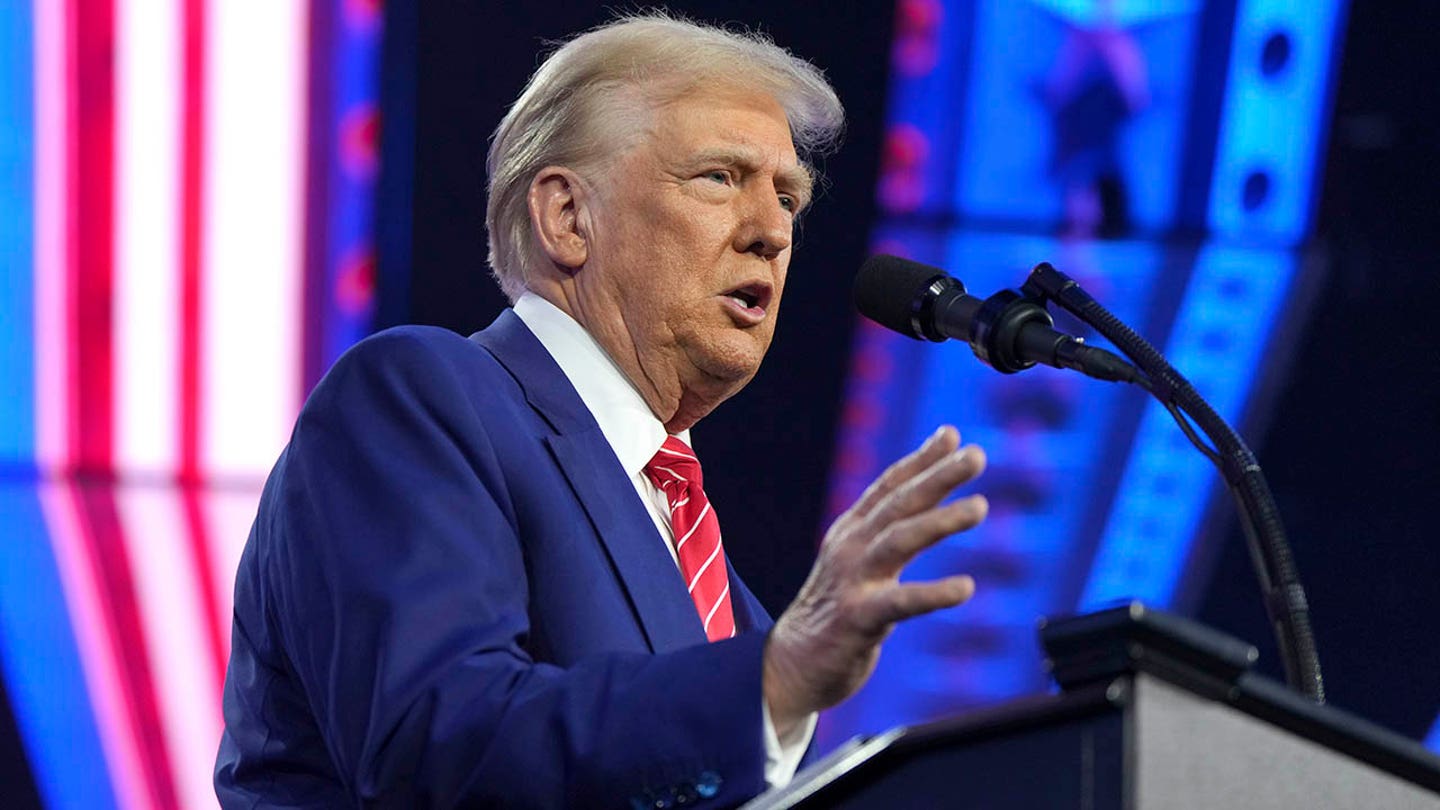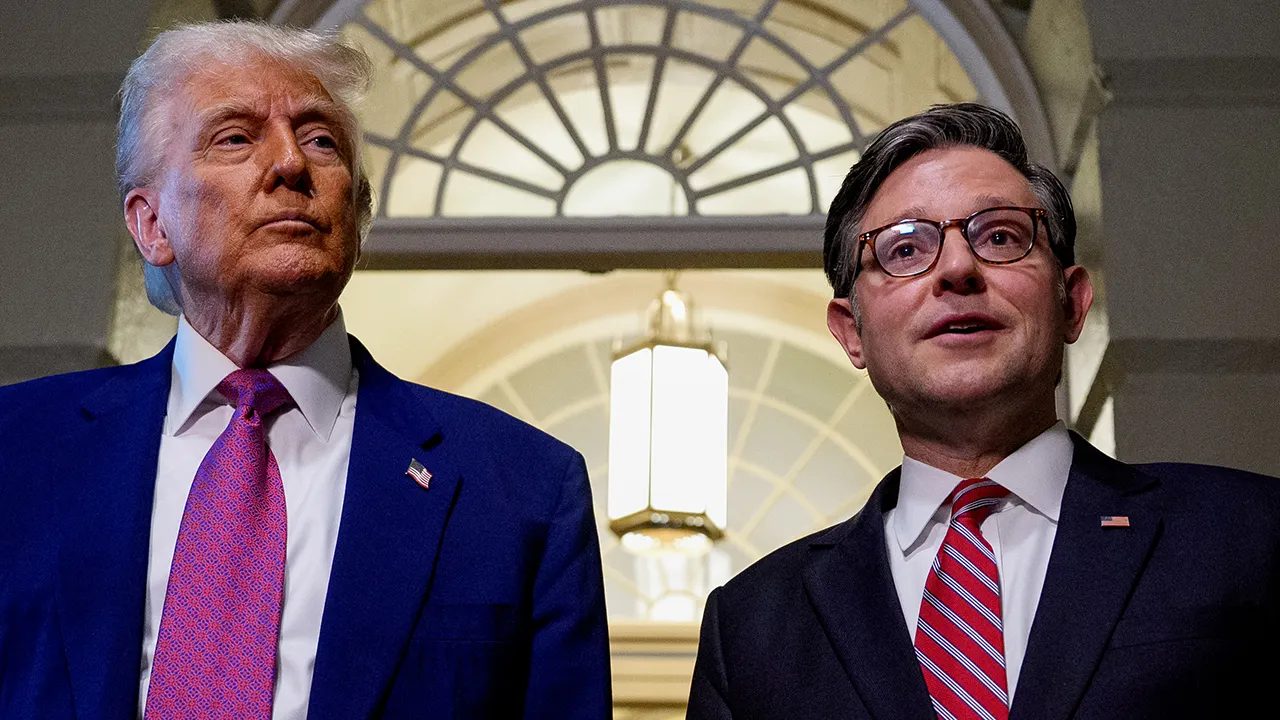
The history of how Trump and Bolton's relationship fell to tatters
Entities mentioned:
- John Bolton: Power, Influence, Self-preservation
- Donald Trump: Power, Control, Revenge
- FBI: Duty, Justice, Security
- Rex Tillerson: Duty, Professional pride
- Mike Pompeo: Loyalty, Influence
- Robert C. O'Brien: Duty, Ambition
- JD Vance: Duty, Loyalty
Article Assessment:
Credibility Score: 75/100
Bias Rating: 55/100 (Center)
Sentiment Score: 30/100
Authoritarianism Risk: 40/100 (Generally Democratic)
Bias Analysis:
The article presents a relatively balanced account of the Trump-Bolton relationship, including quotes from both sides. While it leans slightly towards emphasizing Trump's criticisms of Bolton, it also provides context for their initial positive relationship.
Key metric: Political Stability Index
As a social scientist, I analyze that this article highlights the volatile nature of high-level political relationships in the U.S. government, particularly within the Trump administration. The deterioration of the relationship between Trump and Bolton, culminating in FBI raids on Bolton's properties, demonstrates the potential instability in national security leadership. This can significantly impact the Political Stability Index by showcasing how quickly alliances can shift and how internal conflicts can lead to potential security risks, especially concerning the handling of classified information. The ongoing investigation into Bolton also raises questions about the management of sensitive documents by former officials, which could have implications for national security and governmental transparency.

New RNC chair Joe Gruters vows to 'ride the president all the way to victory' in midterms
Entities mentioned:
- Joe Gruters: Ambition, Loyalty, Power
- Republican National Committee (RNC): Power, Control, Influence
- Donald Trump: Power, Control, Legacy
- Michael Whatley: Ambition, Loyalty, Power
- Democratic National Committee (DNC): Competitive spirit, Moral outrage, Power
- Republican Party (GOP): Power, Control, Unity
- Democratic Party: Competitive spirit, Moral outrage, Justice
Article Assessment:
Credibility Score: 65/100
Bias Rating: 70/100 (Lean Right)
Sentiment Score: 55/100
Authoritarianism Risk: 65/100 (Authoritarian Tendencies)
Bias Analysis:
The article leans right, primarily due to its focus on Republican perspectives and strategies. While it includes some Democratic critique, the majority of the content presents Republican viewpoints favorably, with limited counterbalance.
Key metric: Political Party Power and Influence
As a social scientist, I analyze that this article highlights the consolidation of power within the Republican Party under Donald Trump's influence. The appointment of Joe Gruters, a Trump loyalist, as RNC chair further cements Trump's control over the party apparatus. This move indicates a strategy to align the party closely with Trump's policies and persona for the upcoming midterm elections. The article also touches on significant policy changes, particularly in tax cuts and social welfare programs, which are likely to be key campaign issues. The GOP's focus on election integrity and voter mobilization suggests a concentrated effort to maintain and expand their political power. This shift in party dynamics and policy focus could have substantial implications for the balance of power in Congress and the direction of national policy.

Trump tells Grassley to tell Democrats 'go to HELL' over blocked judicial nominees in Senate
Entities mentioned:
- Donald Trump: Power, Control, Indignation
- Chuck Grassley: Duty, Loyalty, Wariness
- Senate Democrats: Control, Resistance, Power
- Alina Habba: Ambition, Professional pride, Self-preservation
- Judge Matthew Brann: Justice, Duty, Professional pride
Article Assessment:
Credibility Score: 70/100
Bias Rating: 55/100 (Center)
Sentiment Score: 30/100
Authoritarianism Risk: 65/100 (Authoritarian Tendencies)
Bias Analysis:
The article presents multiple viewpoints, including Trump's criticism and Grassley's defense of the blue slip tradition. While it gives more space to Trump's perspective, it also includes factual context about the constitutional process and recent judicial rulings.
Key metric: Judicial Branch Appointments
As a social scientist, I analyze that this article highlights a growing tension between executive power and Senate traditions in the judicial appointment process. Trump's frustration with the 'blue slip' custom reflects a broader struggle for control over the judiciary, which has significant implications for the balance of power in the US government. The slowdown in judicial appointments during Trump's current term, compared to his first, indicates a shift in the political landscape and the effectiveness of opposition tactics. This conflict could lead to further polarization in the appointment process and potentially alter long-standing Senate norms, affecting the composition and perceived legitimacy of the federal judiciary in the long term.

Meet Joe Gruters, the Trump ally now at the helm of Republican National Committee
Entities mentioned:
- Joe Gruters: Loyalty, Ambition, Power
- Donald Trump: Power, Control, Influence
- Republican National Committee: Influence, Power, Unity
- Susie Wiles: Loyalty, Ambition, Influence
- Michael Whatley: Ambition, Power, Loyalty
- Ron DeSantis: Ambition, Competitive spirit, Power
Article Assessment:
Credibility Score: 70/100
Bias Rating: 65/100 (Lean Right)
Sentiment Score: 65/100
Authoritarianism Risk: 55/100 (Mixed/Neutral)
Bias Analysis:
The article leans right, evidenced by its focus on Trump's influence and positive framing of his control over the RNC. While it includes some factual reporting, the language used ('MAGA Warrior', 'RED AS RED CAN BE!') suggests a favorable view of Trump's impact on the party.
Key metric: Political Party Cohesion
As a social scientist, I analyze that this article highlights the consolidation of power within the Republican Party under Donald Trump's influence. The unanimous election of Joe Gruters, a Trump ally, as RNC chair demonstrates the party's alignment with Trump's vision and leadership. This development suggests a strengthening of party cohesion around Trump's ideology and political strategy, potentially impacting the party's approach to the upcoming midterm elections and beyond. The mention of Gruters' clash with Ron DeSantis indicates potential internal conflicts within the party, especially among Florida-based politicians, which could affect the party's unity and strategy in the long term.

Gianno Caldwell mulls Senate bid as Chicagoans are 'begging for change' on crime woes
Entities mentioned:
- Gianno Caldwell: Justice, Ambition, Duty
- Illinois Republican Party: Power, Influence, Security
- Donald Trump: Control, Power, Security
- Muriel Bowser: Freedom, Righteousness, Wariness
- Dick Durbin: Legacy, Duty, Self-respect
Article Assessment:
Credibility Score: 70/100
Bias Rating: 65/100 (Lean Right)
Sentiment Score: 35/100
Authoritarianism Risk: 55/100 (Mixed/Neutral)
Bias Analysis:
The article leans slightly right, focusing more on Republican perspectives and Trump's approach to crime. While it includes some opposing views, it gives more space and detail to conservative positions on law enforcement.
Key metric: Violent Crime Rate
As a social scientist, I analyze that this article highlights the growing concern over crime rates in major U.S. cities, particularly Chicago. Gianno Caldwell's potential Senate bid, motivated by personal tragedy and a desire for change, reflects a broader political shift towards prioritizing law and order. The article suggests a tension between federal intervention in local policing and concerns about civil liberties. This focus on crime could significantly impact the violent crime rate metric by potentially leading to more aggressive law enforcement policies. However, the effectiveness and potential consequences of such approaches remain debatable, as evidenced by the contrasting views presented in the article.

Midterm elections are as unpredictable as ever, as 2026 looms
Entities mentioned:
- Democrats: Power, Control, Legacy
- Republicans: Power, Control, Ambition
- Donald Trump: Power, Influence, Legacy
- Kevin McCarthy: Ambition, Power, Recognition
- Newt Gingrich: Influence, Recognition, Legacy
- Gavin Newsom: Power, Ambition, Control
Article Assessment:
Credibility Score: 70/100
Bias Rating: 55/100 (Center)
Sentiment Score: 45/100
Authoritarianism Risk: 35/100 (Generally Democratic)
Bias Analysis:
The article presents a balanced view of both parties' strategies and challenges. However, there's a slight lean towards Republican perspectives, with more detailed discussion of their potential strategies and concerns.
Key metric: Political Polarization Index
As a social scientist, I analyze that this article highlights the unpredictable nature of midterm elections in the United States. It emphasizes how various factors, including redistricting efforts, presidential popularity, and unforeseen events, can significantly impact election outcomes. The article suggests that traditional models for predicting midterm results may be less reliable in the current political climate. This unpredictability could potentially increase political polarization as parties struggle to maintain or gain control, leading to more aggressive tactics and rhetoric.

Scoop: 'Make America Fentanyl Free' campaign launches to help Trump lower overdose deaths
Entities mentioned:
- Donald Trump: Ambition, Legacy, Control
- Make America Fentanyl Free campaign: Righteousness, Duty, Influence
- Mexican drug cartels: Greed, Power, Control
- Trump administration: Control, Legacy, Security
- Democrats in California: Moral outrage, Justice, Security
Article Assessment:
Credibility Score: 65/100
Bias Rating: 70/100 (Lean Right)
Sentiment Score: 45/100
Authoritarianism Risk: 55/100 (Mixed/Neutral)
Bias Analysis:
The article leans right, primarily focusing on Trump's efforts and the new campaign supporting him. It presents criticism of Trump's approach briefly and near the end, giving more prominence to pro-Trump messaging.
Key metric: Drug Overdose Death Rate
As a social scientist, I analyze that this article highlights a new campaign aimed at supporting President Trump's efforts to combat fentanyl-related deaths in the United States. The campaign, 'Make America Fentanyl Free,' is presented as a privately-funded initiative to educate the public about fentanyl dangers and support Trump's policies. The article emphasizes Trump's past actions against fentanyl trafficking but also mentions criticism of his administration's approach. This campaign could potentially impact the drug overdose death rate by increasing public awareness and supporting stricter border control and law enforcement measures. However, the effectiveness of such campaigns in directly reducing overdose deaths is often debated in the scientific community.

Pro-Mamdani super PAC takes hefty check from ultra-wealthy donor despite saying billionaires shouldn't exist
Entities mentioned:
- Zohran Mamdani: Ambition, Righteousness, Influence
- Elizabeth Simons: Influence, Legacy, Righteousness
- Jamie Simons: Legacy, Influence, Philanthropy
- Andrew Cuomo: Competitive spirit, Indignation, Power
- New Yorkers for Lower Costs PAC: Influence, Power, Unity
Article Assessment:
Credibility Score: 75/100
Bias Rating: 65/100 (Lean Right)
Sentiment Score: 35/100
Authoritarianism Risk: 25/100 (Generally Democratic)
Bias Analysis:
The article leans slightly right, focusing on the contradiction in Mamdani's campaign and giving voice to his critic, Andrew Cuomo. While it presents factual information, the framing emphasizes perceived hypocrisy in left-leaning politics.
Key metric: Income Inequality
As a social scientist, I analyze that this article highlights a significant contradiction between Zohran Mamdani's campaign rhetoric against billionaires and the acceptance of substantial donations from billionaire-adjacent sources. This disconnect potentially impacts income inequality by undermining efforts to address wealth concentration. The article exposes the complex relationship between political ideals and campaign finance realities, suggesting that even candidates with strong anti-billionaire stances may struggle to completely detach from wealthy donors' influence. This situation could affect public trust in political campaigns and potentially hinder genuine efforts to address income disparities in New York City.

Trump says law enforcement crackdown will ‘go on to other places’ during appearance at police facility in DC
Entities mentioned:
- Donald Trump: Power, Control, Recognition
- US Park Police: Duty, Security, Professional pride
- National Guard: Duty, Security, Obligation
- JD Vance: Loyalty, Ambition, Influence
- DC Residents: Freedom, Self-preservation, Indignation
Article Assessment:
Credibility Score: 70/100
Bias Rating: 55/100 (Center)
Sentiment Score: 35/100
Authoritarianism Risk: 65/100 (Authoritarian Tendencies)
Bias Analysis:
The article presents multiple viewpoints, including Trump's statements, opposition from DC residents, and critical perspectives. However, it leans slightly towards emphasizing concerns about the federal intervention, potentially reflecting a slight center-left bias.
Key metric: Public Trust in Government
As a social scientist, I analyze that this article highlights a significant tension between federal authority and local governance in Washington, DC. The expansion of federal law enforcement presence, including the National Guard, into city affairs without local support (79% opposition) indicates a potential erosion of public trust in government. This action, framed as a safety measure by the administration, is perceived differently by residents, suggesting a disconnect between federal intentions and local desires. The potential expansion to other cities could further strain federal-local relations and impact democratic norms, particularly in areas with strong local governance traditions. The emphasis on clearing homeless encampments without clear alternatives also raises concerns about social policy approaches and their impact on vulnerable populations.

Trump’s more conventional judicial nominees could give Alito and Thomas greater confidence to retire
Entities mentioned:
- Donald Trump: Power, Control, Legacy
- Federalist Society: Influence, Righteousness, Legacy
- Emil Bove: Loyalty, Ambition, Influence
- Wall Street Journal editorial page: Influence, Wariness, Professional pride
- Clarence Thomas: Legacy, Duty, Righteousness
- Samuel Alito: Legacy, Duty, Righteousness
- Stephen Kenny: Professional pride, Loyalty, Influence
- Mike Davis: Influence, Ambition, Righteousness
Article Assessment:
Credibility Score: 75/100
Bias Rating: 55/100 (Center)
Sentiment Score: 50/100
Authoritarianism Risk: 45/100 (Mixed/Neutral)
Bias Analysis:
The article presents multiple perspectives and includes critiques of Trump's approach, suggesting an attempt at balance. However, it predominantly features conservative voices and focuses on conservative strategy, indicating a slight center-right lean.
Key metric: Judicial Appointment Efficacy
As a social scientist, I analyze that this article highlights the complex interplay between political power, judicial appointments, and conservative legal ideology in the United States. Trump's second-term judicial nominations show a return to more conventional conservative picks after initial departures, potentially to encourage retirements of older conservative justices. This strategy aims to solidify a long-term conservative judicial legacy, impacting crucial social and political issues for decades. The article reveals tensions within conservative legal circles and the ongoing influence of the Federalist Society, despite Trump's public criticism. The focus on younger nominees and the emphasis on loyalty suggests a calculated approach to reshape the judiciary, with significant implications for the balance of power and interpretation of law in the U.S.